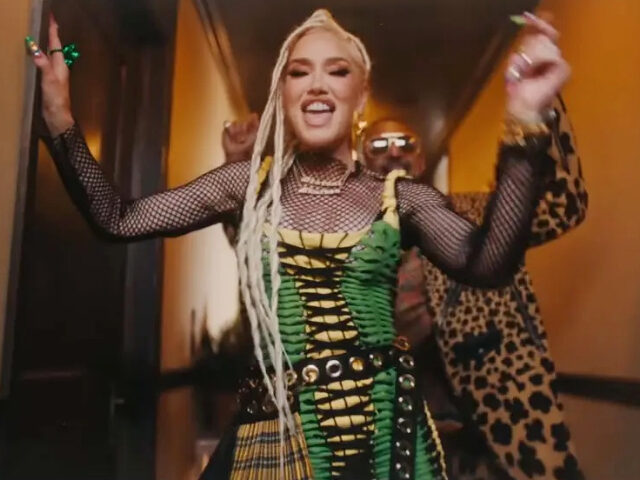Gwen Stefani is being accused of “cultural appropriation” over a new music video for the song “Light My Fire,” in collaboration with rapper Sean Paul.
In the video, Stefani can be seen wearing apparent dreadlocks, clad in a blue and yellow outfit that matches the Jamaican flag.
Watch Below:
“Gwen Stefani is BACK with a cultural appropriation banger,” one Twitter user reacted.
“Gwen Stefani in dreads… the OG of cultural appropriation is back!” another echoed.
“Y’all. Mother Appropriation is BACK!!!! Where my 2000s No Doubt / Gwen hive at!!!?? ITS TIME!!!” a third Twitter user quipped.
Y’all. Mother Appropriation is BACK!!!! Where my 2000s No Doubt / Gwen hive at!!!?? ITS TIME!!! pic.twitter.com/AnDUt0H61W
— Gwen Stefani’s Cultural Diversity Consultant (@chulito_jotito) July 13, 2022
“Dear Gwen, You’re far too comfortable with cultural appropriation,” another complained. “Y’all Remember the harajuku girls? The bindi she chose to wear in one her videos? The bantu knots? The imitation of indigenous culture within a music video, as well as, indecently portraying Latina women?”
“Culture is nothing but dress up for you, Gwen. It’s time you stop treating people’s heritage like a childish game & give it the respect it deserves,” another lectured. “Alternatively, why don’t you portray your OWN cultural background within your work? Im sure people would love to see that.”
The “No Doubt” singer, who has been seen sporting braids since the early aughts, has been accused of “cultural appropriation” in the past.
In a 2019 interview with Billboard, Stefani defended herself in response to attacks over her 2004 song, “Harajuku Girls,” for which the singer featured Japanese dancers in videos, and sometimes live.
“I wanted to write a song that talked about my love for Harajuku,” the singer explained. “When you’re from Anaheim and never traveled outside of your city until you’re 21 years old, it was really crazy to go to Japan.”
“My dad went there a lot because he worked with Yamaha motorcycles, so I had a fascination from a young age,” she continued. “When I got there and saw how fashion-obsessed they were, I thought they were my people, because my style was so unique.”
“I get a little defensive when people [call it culture appropriation],” Stefani added. “Because if we didn’t allow each other to share our cultures, what would we be? You take pride in your culture and have traditions, and then you share them for new things to be created.”
You can follow Alana Mastrangelo on Facebook and Twitter at @ARmastrangelo, and on Instagram.

COMMENTS
Please let us know if you're having issues with commenting.